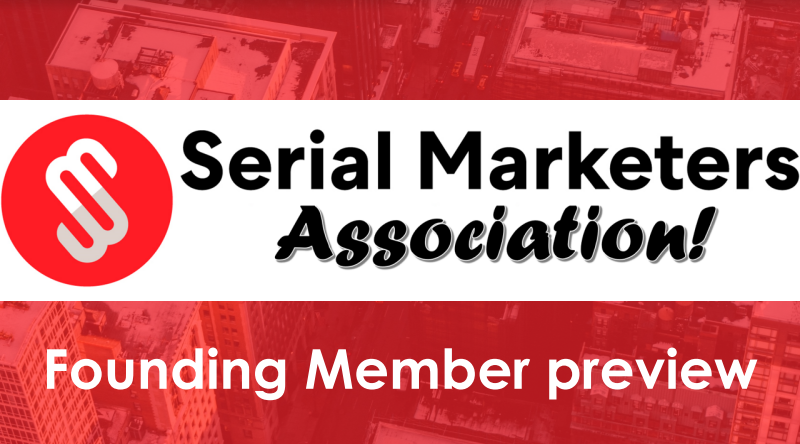I’ve been working on this post for awhile now, having been inspired by something at a keynote at an iMedia Summit in March, and I can’t remember the connection. What follows is a biography as told through the most important moments and times where media shaped my life. In the comments or on your own blog, share yours and let me know when you do.
1) Early 80s: While I don’t remember starting to read, I do remember writing early, around kindergarten. I generally focus on rhyming poetry, channeling inspiration from Shel Silverstein, and then Ogden Nash and Jack Prelutsky. Later, in sleepaway camp, I write poems for the newsletter and am dubbed the “poet laureate of Camp Scatico.” My other writing at Scatico: frequent letters home and to aunts and uncles with specific lists of the junk food I want in my care packages.
2) Early 80s: My brother gets an Apple IIe – green and black monochrome. I don’t know what he used it for, but there were three games on it. One was Fat City, the only game I was allowed to play, where you had a wrecking ball and you had to destroy a city in search of oil and other treasures. There were two other games I couldn’t play. One was strip poker. The other was a hacked spoof of the adventure game Jungle Hunt, with the second word renamed to rhyme with anatomical slang.
3) Early-mid 80s: I write my first book report on Stuart Little using Wordperfect, and learn about the thesaurus in the process. In my report not long after on Sir Francis Drake, I call the explorer “daring and mature, my kind of type.” Years later, my mom explained how valuable the computer was for my education as I’d think too fast to capture thoughts in writing. The computer let me capture it all.
4) 80s: He-Man airs. I’m transfixed not just by the show, but by the commercials. I SO wanted to be the kids playing with the He-Man action figures in the TV spots. And I had a better haircut.
5) Mid-late 80s: My friend and I realize we can chat online by dialing up each other’s modems. I’m on a 1200 baud, he’s on a 2400 (remember baud rates?). When we’re on half-duplex, we can see what the other’s typing as it’s written, essentially a collaborative workspace operating in real-time, though for us, it was just the coolest but most inefficient way possible to have a conversation, which most likely had a lot to do with the Thundercats.
6) Late 80s/early 90s: I get a TV on my room, and it has one of the sneakiest features ever added to a media device: sleep timer. That’s right, watch as much as you can and keep the TV going for another 30 minutes so that your media consumption can carry on until the exact minute you conk out.
7) Late 80s/early 90s) Early 90s: My family gets cable. And still there’s nothing on.
8) Early 90s: I get a CD player and a gift certificate to Tower Records. Six of the first nine albums I get are by Billy Joel.
9) Early 90s: My family signs up for Prodigy, the internet service provider (ISP). We get email. I didn’t know much about what this internet thing was all about, but I was transfixed by it. I also learned about finance by dialing into Citibank and playing an educational game there (my parents had a mixed track record with early adoption, but they were among the first people in the world to use online banking). It was also probably one of the first examples of a services company evolving as an online media company.
10) Late 90s: I start writing the Literally Speaking column for my university’s twice-weekly campus newspaper. It’s a humorous take on personal anecdotes and campus observations, inspired by Dave Barry and, to lesser degrees, Jerry Seinfeld and Woody Allen.
11) Late 90s: I host a viewing party for the Seinfeld finale, complete with chocolate babka, Tweety Bird Pez dispensers, and other icons from the show. My newspaper column goes on to envision 25 years in the future with people from school reminiscing on where they were when Seinfeld went off the air. It’s possibly the last time a TV series finale will inspire anything like that.
12) Late 90s: I leave my post as co-editor-in-chief elect of the college newspaper – hands down the main media engine of my university – to launch an online entertainment magazine. As a campus group, I request and receive a budget of $150 from the Student Association, compared to the tens of thousands of dollars it takes to run the paper. Expenditures from that $150: buying the domain, web hosting, photocopies (including cardstock bookmarks as a reminder to bookmark the site) and a pizza party for the volunteer staff.
13) 2000: I go on my first job interview for an internet company, via Monster.com. The job’s for a technical writer. I’m asked for tech writing samples I’ve done, and I don’t have any, since I don’t know what tech writing is. That night, I go home and write an FAQ for the online mag, coding the HTML and uploading it via FTP. I get the job, which indirectly leads to me landing at eMarketer several months later (through a job posting on HotJobs) and the start of my career.
14) I start a long-form interview series at eMarketer, with a Q&A with Ask.com being the first of 175 articles published during my time there; my column-writing later continues with MediaPost’s Search Insider in 2004. Between eMarketer, MediaPost, and other bylines (including some that were ghost-written for others), I’ve written about 400 columns, and then there’s the 1,000 or so blog posts on this blog and others. Only occasionally do I use the thesaurus, which was so instrumental for that Stuart Little book report.
15) September 11, 2001: I’m heading to work at eMarketer just south of Union Square in Manhattan when the terrorists attack. I first hear about the attacks via word of mouth; a man collecting money for the homeless saw the planes fly overhead and tries making sense of the news. I stay at work for hours since the IM, email, and landline phone at the office are all working, and I want to stay where I know I can send and receive information. I try to hover around screens to watch online video on MSNBC.com and elsewhere, but no one has the bandwidth to deliver it. Someone has a radio. I have my manual Pentax K1000 35mm camera with me, and I go outside to take pictures of the Towers on fire, covered in smoke, and then ultimately gone. Later, I take pictures of the city on my walk home to East 66th Street.
16) November 2005: This blog launches, giving me an everpresent online voice and an official entryway into the blogging community that I’ve joined previously through several group blogs and corporate blogs.
17) I get a digital video recorder (DVR) through Time Warner Cable. My TV viewing habits are permanently altered. I start watching far more TV, though it’s often best for when there’s nothing on so I can watch reruns of The Office.
18) 2007: I use Skype from Mexico to call friends and family to tell them I’m engaged. I even selected the hotel because of its in-room internet access.
19) 2007: I get a Wii, the first game console I bought in 20 years. While I won’t forget the first time I played it at my friend Mike’s apartment, those moments of amazement happen regularly, even months after first getting it.
20) 2008: I get my first smartphone. While I tried out an early version of the BlackBerry years back, and I would go online with my standard mobile phone, the Samsung i760 gives me access to the mobile web in full (okay, some of it’s more accessible than others). The power is tremendous. I try explaining to people how it is to have all of Google, Wikipedia, The New York Times, and so much of the world’s digital information with me wherever I go, whenever I want it, through a device I keep in my pocket wherever I go. The more I think about it, the less I can fathom it, just as I can’t fathom how media will shape my life in the decades to come.







No Comments
Leave a comment Cancel